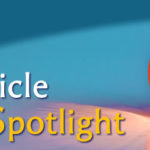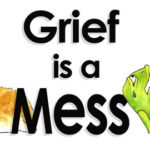
This week Harvard Business Review posted a good article about what we should and shouldn’t consider as the country starts to reopen. When you find yourself heading toward unfettered movement, read it again. And remember: nobody really knows.
Find Your Pragmatic Path through Radical Uncertainty
May 15, 2020 – Harvard Business Review
Howard Stevenson, Eugene B. Kogan, and Shirley Spence
These are times that none of us have seen before. Amid the radical uncertainty of the corona virus pandemic, fear has reared its ugly head medically, economically, financially, politically, and socially. We all would love to know when life will return to “normal” even if it is a different normal than what we have previously experienced. Many companies are running ads or issuing CEO messages that say: “We are in this together.” Perhaps it is more important for leaders to convey Jerry Seinfeld’s message: “I’m here for you.”
The point may seem trite but it reflects the importance of our ability to trust in our relationships. We each should do our best to keep our relationships reliable and predictable, to be someone on whom others can count during the incredible uncertainty and anxiety we all are experiencing.
To get through this, professionally and personally, here are a few suggestions for things we should do and some we shouldn’t do.
Big-picture observations
The first thing we should do is understand how complicated the problem is. This is especially true when as Dr. Anthony Fauci states: “The virus will give us the answers.” Will contracting the disease provide immunity? How long will immunity last? When will a successful vaccine be widely available? What will be an acceptable vaccine trial? How fast will the virus mutate? When can mass testing begin? When will it be safe to loosen social restrictions and reopen businesses? Other questions depend on the answers to the medical questions. Will government funds for the disadvantaged people and businesses be sustainable? What will happen to inflation? Will food supplies last? How will we educate our children? When will the economy recover? Will my business survive?
Equally important is the need to be clear about what we know, and what we don’t know. As in all crises, there are also a number of unknown unknowns that will become apparent with the passage of time. Then we must be honest about the three categories, especially when communicating with those who depend on us for advice and leadership. We must be willing to explain why we can’t answer all the questions. Credibility is a critical commodity in a crisis and it must not be wasted. “Who to trust” is a question that everyone is asking.
The first thing not to do is believe those who claim to have definitive answers to these big questions. The data to answer most corona virus questions with certainty doesn’t exist. We won’t know for five years if immunity lasts five years. We can’t understand mutation without history. No one knows what level of risk society is willing to bear to reopen the economy. No one can predict with any certainty how shopping patterns and consumer tastes will change. No one can be sure when people will feel safe enough to travel so that the hotels, airlines, restaurants, and ski resorts will become economically viable again.
The second thing not to do is make long-term bets. In budgeting for operations, for example, lots of effort is wasted by thinking that we can project with any accuracy the timing for getting the answers to the important questions that will define the new normal. Complete confidence has never been possible about the future. Process planning and scenario planning make more sense than fixed projections because they focus on answerable questions. What is required to remain solvent per month? What startup costs will be required to return to “normal?” How can we estimate what beyond normal operations must be committed now to emerge more strongly out of this crisis? What can we afford? What are the implications for our staffing model?
Individual-level observations
On an individual basis there also are things we should not do and those that we should do to mitigate the volatility in our current environment, thus making our lives and those of others as orderly as possible. The first imperative is to resist the temptation, which radical uncertainty exacerbates, to panic. While hoarding paper products may seem like a “safe” option for us, it is likely an overreaction that will deepen the uncertainty for others. The second imperative is not to overestimate your knowledge. Factor the possibility of the unknowables into your decision-making but do not wait for perfect information to make decisions. We have to make choices every day. Freezing is as bad as overconfidence. Remember French philosopher Henri-Louis Bergson’s injunction: “Think like a man of action, act like a man of thought.”
“How do I spend my time and my money” is a question that requires rethinking during a time of crisis. Thus, the third thing to do is to be more reflective about our routine activities. These days, we need to plan more carefully because small decisions can have dire consequences for ourselves and for others. Consider the newly stressful task of grocery shopping. Should I order groceries online for home delivery or go to the store? If I do venture out, which store and when? How can I safely clean and store my purchases? We have to consider how our actions and communications can help overcome the effects on our critical relationships during social distancing. Many of us also are eager to help address the urgent needs and deep-rooted problems presented by corona virus but need to consider what we can realistically and meaningfully do. Choices are required, personally (financial donations? hands-on (volunteering?), and professionally (commitment of company resources?).
Another “should do” in these trying times is to cultivate empathy. Understanding our impact on others is not the same as agreeing with them or even being sympathetic. Empathy involves considering a serious question: “How can I act without increasing the uncertainty in the lives of others?” Wearing a mask won’t guarantee your safety but it will make the people that you encounter less nervous and may even reduce the spread of infection. Visiting your elderly parents or holding an important meeting in-person may increase your sense of control and confidence, but are you helping or endangering others to reduce your own uncertainty?
The challenge during times of radical uncertainty is to find a pragmatic middle ground between acting thoughtlessly and not acting at all. We each would like to know whether our actions will lead to the consequences that we seek. So would others. Hopefully, the suggestions offered here will increase the predictability of our actions and those of others, and help all of us to navigate the corona virus crisis by conveying to employees, colleagues, friends, and family that “I’m here for you.”






























